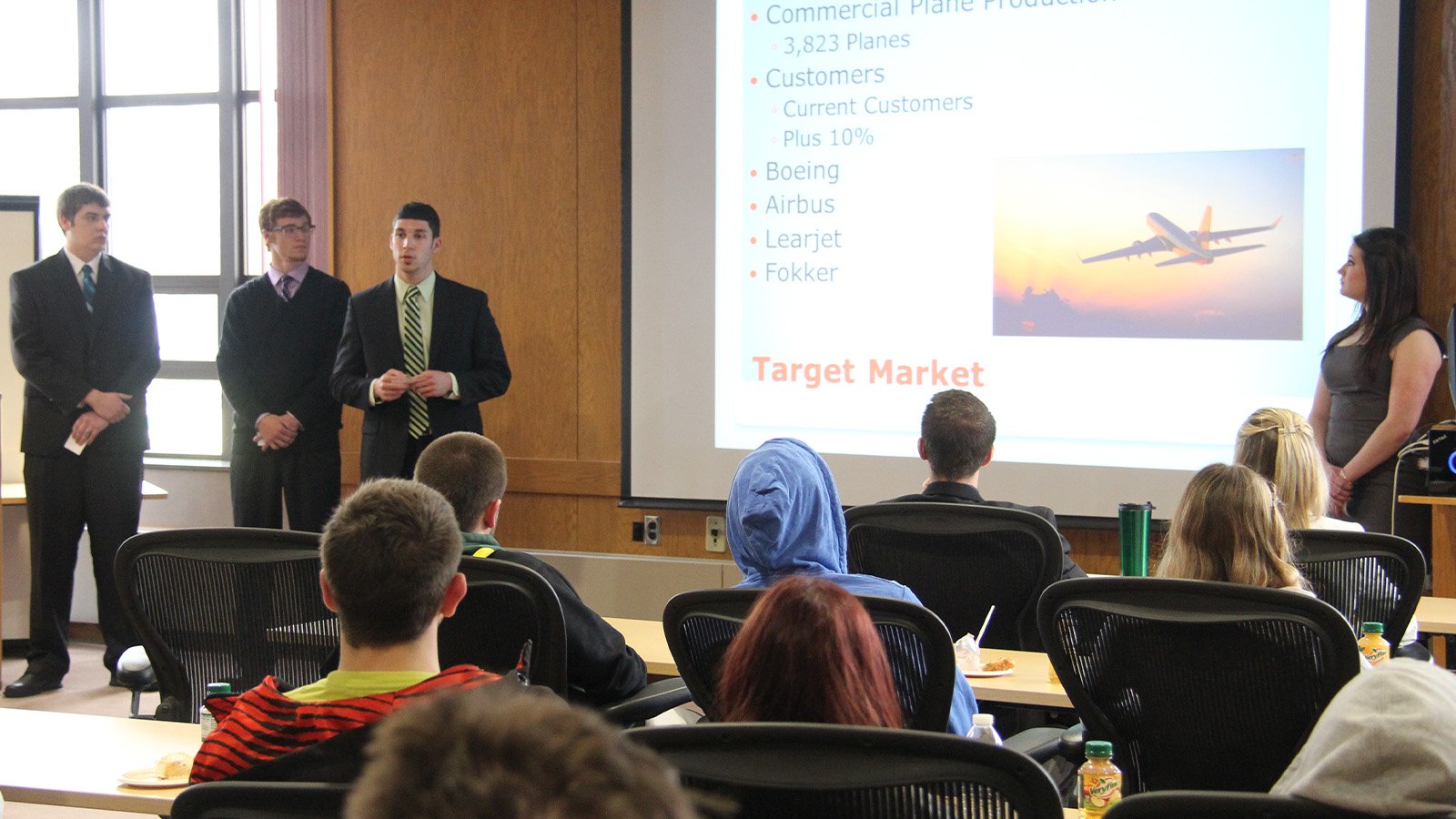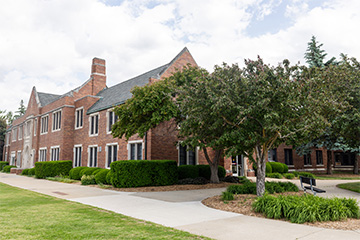College of Business Administration adapts to meet employer needs
Five things to know about CBA’s commitment to preparing students

Class offerings within Central Michigan University’s College of Business Administration are responding to meet the needs of today’s employers, including a focus on data usage, presentation prowess and teamwork.
“When talking with employers and alumni about what they are looking for in young professionals, we saw opportunities in two areas: social skills and data analysis,” said CBA Associate Dean Misty Bennett. “The question then became, ‘How do we integrate both?’”
Here are five facts about how the college is equipping students with the most in-demand skills:
1. Core course integration results in real-world application
CBA’s approach to core courses isn’t new. Rather, the way these courses are integrated gives students the most value.
The three core classes are taken simultaneously, and despite the unique subject of each, they all utilize one central data set. A recent semester’s data focused on meal delivery kits. Student teams utilized the data in each of their classes in a variety of ways, including suggesting company names and brand positioning; evaluating what type of food the meal kits should offer; and analyzing customer preferences and sales metrics.
This collective approach helps students understand how data-driven decisions impact various aspects of a business.
2. Spreadsheets course enhances data utilization
As data analytics becomes increasingly vital in the workplace, CBA has modified a core course to focus on this skill. BUS 321: Spreadsheet-Based Data Analysis for Business teaches students not only how to best organize data, but also how to interpret and present it to stakeholders — just as they might in the real world.
3. Emphasis on speaking and presenting refines skills, builds confidence
Many of the CBA courses have done away with traditional final exams in replacement of final presentations. The benefit? Practice.
The shift allows students to gain repetition and confidence in presenting in front of a group of people. It also helps them learn how to translate data into actionable business strategies.
In BUS 351: Applied Business Analytics, students don’t just deepen their data organization skills. Rather, they clean and prepare data, build models and theories, and then present their recommendations to guide decision-making.
4. Compounding one-credit skills courses amplify learning
Starting their freshman year, students take one-credit courses that focus on in-demand skills to prepare them for academic, professional and personal success.
The first class emphasizes teamwork. It equips students with the knowledge of how to successfully work within a team and allows them to analyze their strengths, explore career opportunities and focus on their own well-being as part of a larger group.
The second course, generally taken during a student’s second year, focuses on leadership and understanding personal leadership styles. As students tackle internships and other work opportunities, knowing leadership tactics helps them excel in these roles.
The final course, taken during a student’s third year, is career management, which prepares students for the realities of the working world.
5. Career management course sets students up for success
The final one-credit course, BUS 302: Career Management, isn’t your typical career preparatory course. It covers practical tips to help students with how to thrive the real world, including navigating workplace harassment, seeking career mentors and wellness strategies.
Students learn about how taxes and insurance are deducted from paychecks and how to begin preparing for retirement. They also discuss work-life balance and the importance of working with an employer that aligns with not only their professional skills, but personal values.
“This class is truly about what students need to know about the real world,” said business information systems faculty member and course educator Denise McBride. “We’re having discussions general 21-year-olds may not be having about money, retirement, work and life.”




